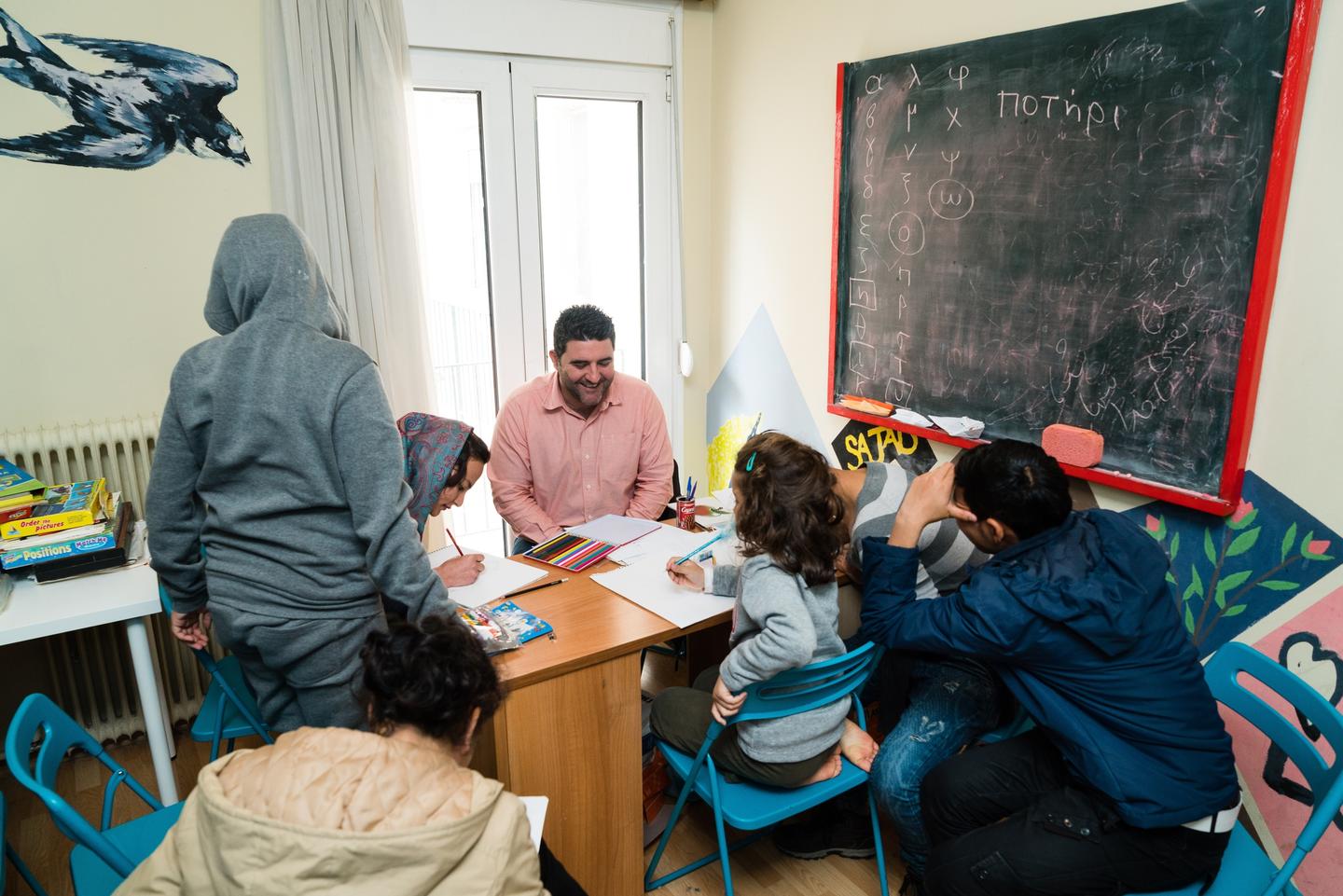Key information about the programme
- The programme is operated by: the Hellenic Ministry of Citizen Protection
- The Donor Programme Partner in this programme is: The Norwegian Directorate of Immigration
- The programme’s objective is: Functioning national asylum and migration system ensured and the right to seek asylum safeguarded
- The programme funding amounts to € 16,5 million (excluding co-financing) and is funded entirely by the EEA Grants.
Why is the programme needed?
Since 2010 Greece has been coping with increased migratory flows both at its land and sea borders, which has intensified from 2015 onwards when Greece faced an unprecedented influx of refugees and migrants entering its territory. Although Greece has developed good policies and dedicated administrative resources to tackling the influx of migrants, the emergency situation from 2015 has made it difficult to implement sustainable measures. Greece went form a transit to a destination country, which resulted in a tremendous increase in applications for international protection. The fact that the number of arrivals to the islands has been consistently higher than the number of returns has resulted in a significant backlog of asylum cases and appeals while at the same time overcrowding the reception facilities on the islands.
The migration situation in Greece illustrates the essential need to adopt long-term contingency plans and solutions as well as to develop a horizontal coordination mechanism to ensure an effective coordination among migration and asylum related services. Such services include managing migratory flows, developing consolidated national migration policy and multiannual strategies.
The Greek authorities remains understaffed which is a serious challenge in processing asylum claims. As a result, those who have applied for asylum, are experiencing significant delays in the processing of their cases with detrimental effects on the most vulnerable groups of asylum seekers. Presently, the lack of a coherent policy for providing interpretation services to all asylum seekers in Greece adds to the challenges of accomplishing optimal management of asylum seekers; which combined with the unpredictability of new arrivals, deriving from the uncertain prevailing situation in the neighbouring countries, inevitably put an extra burden on the authorities.
An additional challenge relates to the fact that children and youth are going unidentified and thereby not receiving the protection and/or assistance available for them. Youth may find themselves resettled in areas where they continue to be exposed to community violence and economic exploitation. Unaccompanied refugee minors are a vulnerable group between an already vulnerable population with a complex set of needs. Assistance to this group requires simultaneous consideration of psychological, social and legal issues, otherwise refugee minors are being denied their rights and are exposed to danger.
The above mentioned facts imply that Greece could benefit from a holistic identification and protection procedure being gradually introduced. This requires further knowledge and capacity building in relevant Greek authorities to reach a more comprehensive approach regarding the basic needs and rights of migrants and especially minors within the national asylum and migration management system.
What will the programme achieve and who are the beneficiaries?
Addressing the above-mentioned challenges, the Programme will contribute to the enhancement of the national asylum and migration management system through seven pre-defined projects. The first project will improve the effectiveness and quality of the appeals by reducing back-log of asylum appeal cases, develop a system for country of origin, introduce case management system and staff training. The second project sets out to increase the capacity of the Greek authorities in dealing with extremely vulnerable persons by enhancing the organizational capacity of the Greek asylum service and by introducing new IT-tools. In addition, by enhancing interpretation services for asylum seekers the quality in case management will be improved.
The third project will contribute to ensuring an effective coordination among competent authorities and to develop strategies, action and contingency plans. The project will improve the effective monitoring of the various aspects of migration, the establishment of a knowledge sharing mechanism and the capacity building among the first line and supportive personnel. The project will establish an Immigration and Asylum Observatory and a national registry of interpreters. The fourth project will improve the social care towards asylum seekers and establish standard operating procedures of social care for unaccompanied minors and vulnerable groups. The fifth project will contribute to the protection and awareness rising of the fundamental rights of migrants and people seeking international protection, especially regarding children. This will be achieved with support from The Fundamental Rights Agency (FRA) through on-site visits and reports from accommodation sites and guidance, training and technical assistance to relevant personnel. The sixth project include development of training materials for the police officers and the reception centres to identify vulnerable groups early in the asylum process, assess their needs and prepare them for the rest of the process. The last project will strengthen the capacity of accommodation services for vulnerable applicants with special needs. Furthermore, the project will improve the security in reception facilities, strengthen the knowledge through capacity-building measures and secure the welfare of the staff in the reception facilities.
How will the programme strengthen bilateral relations?
The EEA grants Home Affairs programme has a strong bilateral dimension with Donor Programme Partner playing an important role in both the preparation and implementation of the programme. Strengthened bilateral cooperation will be ensured by sharing good practices and joint participation in training events and exercises. Several public entities in the Donor States will be involved in the implementation of the predefined projects.
Availability of funding through open calls
The funding in this programme will be made available through the following open calls:
- Small Grant Scheme #1 will be launched 2nd half of 2021
Download the full programme agreement for more detailed information about the programme. More information can also be found on the website of the EEA Grants in Greece.
